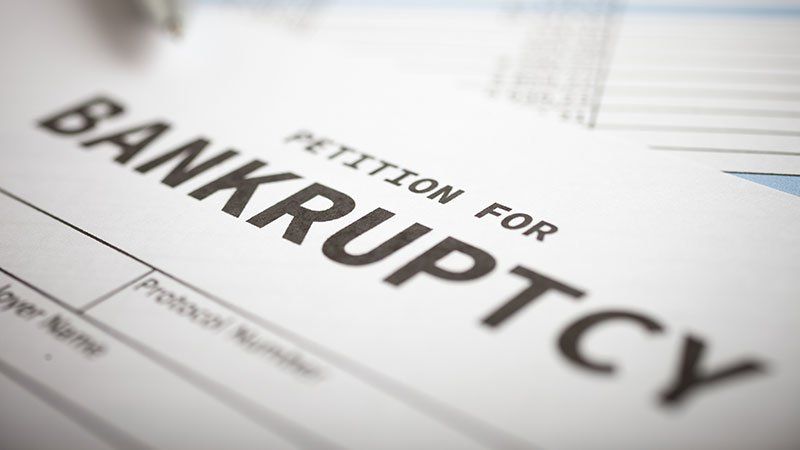PRACTICE AREAS
Bankruptcy
We are a federally designated debt relief agency. When appropriate, we help people file for bankruptcy relief under the Bankruptcy Code.
If you have financial problems or are considering filing bankruptcy, Attorney Carr can help you eliminate your financial problems and get you a fresh start.
Attorney Carr conducts a Discounted Initial Consultation – $100.00 for Individuals and $200.00 for Businesses. At the consultation, he will analyze your financial situation and give you a recommendation how to best solve your financial crisis.
The total fee for a bankruptcy or other financial workout will vary based upon the type of bankruptcy to be filed and complexity of case. However, Attorney Carr will give you an estimate of fees at the conclusion of the initial consultation.

WHEN YOU FILE BANKRUPTCY
You can choose the kind of bankruptcy that best meets your needs (provided you meet certain qualifications):
Chapter 7 – Is known as a liquidation bankruptcy, where a trustee is appointed to take over your property. Any property of value in excess of what you are permitted to keep will be sold or turned into money to pay your creditors. However, there are many items that you are allowed to keep, so that for most people, there isn’t anything taken or sold.
Chapter 13 – Is a reorganization bankruptcy. You can usually keep your property, but you must make monthly payments for a three to five year period. A trustee is appointed and will collect the payments from you, pay your creditors, and make sure you live up to the terms of your repayment plan. Chapter 13 is often used to save a house from foreclosure by allowing you time to repay your mortgage arrears.
Chapter 12 – Like chapter 13, but it is only for family farmers and family fishermen.
Chapter 11 – This is used mostly by businesses. In chapter 11, you may continue to operate your business, but your creditors and the court must approve a plan to repay your debts. There is no trustee unless the judge decides that one is necessary; if a trustee is appointed, the trustee takes control of your business and property.
WHAT IS A BANKRUPTCY DISCHARGE AND HOW DOES IT OPERATE?
One of the reasons people file bankruptcy is to get a “discharge.” A discharge is a court order which states that you do not have to pay your debts. However, some debts cannot be discharged. For example, you cannot discharge debts for:
- most taxes;
- child support;
- alimony;
- most student loans;
- court fines and criminal restitution; and
- personal injury caused by driving drunk or under the influence of drugs.
The discharge only applies to debts that arose before the date you filed. Also, if the judge finds that you received money or property by fraud, that debt may not be discharged.
It is important to list all your property and debts in your bankruptcy schedules. If you do not list a debt, for example, it is possible the debt will not be discharged. The judge can also deny your discharge if you do something dishonest in connection with your bankruptcy case, such as destroy or hide property, falsify records, or lie, or if you disobey a court order.
You can only receive a chapter 7 discharge once every eight years. Other rules may apply if you previously received a discharge in a chapter 13 case. No one can make you pay a debt that has been discharged, but you can voluntarily pay any debt you wish to pay.
Even if a debt can be discharged, you may have special reasons why you want to promise to pay it. For example, you may want to work out a plan with the bank to keep your car or your house. To promise to pay that debt, you must sign and file a reaffirmation agreement with the court. Reaffirmation agreements are under special rules and are voluntary. They are not required by bankruptcy law or by any other law.
If you reaffirm a debt and then fail to pay it, you owe the debt the same as though there was no bankruptcy. The debt will not be discharged and the creditor can take action to recover any property on which it has a lien or mortgage. The creditor can also take legal action to recover a judgment against you.
There are many other facets to bankruptcy. If you want to learn more, please contact Attorney Carr for the initial discounted consultation.
Ream, Carr, Markey, Woloshin & Hunter attorneys who practice Bankruptcy are:
© 2023 Ream, Carr, Markey, Woloshin & Hunter LLP. All Rights Reserved. The use of this website does not create an attorney/client relationship.


